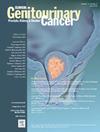重新评估证据:老年转移性激素敏感前列腺癌患者强化治疗是否合理?
IF 2.7
3区 医学
Q3 ONCOLOGY
引用次数: 0
摘要
通过网络meta分析(NMA)评估老年(≥65岁)转移性激素敏感性前列腺癌(mHSPC)患者强化全身治疗的比较疗效,并评估在该人群中常规使用强化方案是否合理。对MEDLINE、Embase和Cochrane图书馆数据库进行了系统的文献检索,确定了2000年至2024年间发表的评估mHSPC一线系统治疗的随机对照试验。符合条件的研究将雄激素剥夺治疗(ADT)与多西他赛、阿比特龙、恩杂鲁胺、阿帕鲁胺、达罗卢胺或抗雄激素联合使用。主要终点是总生存期(OS)。贝叶斯NMA采用一致性模型和马尔可夫链蒙特卡罗模拟进行。SUCRA值用于估计治疗排名。如有可能,提取老年患者的亚组数据。其中11人被纳入分析。与单独ADT相比,在老年亚组中,强化方案在OS方面没有统计学上的显著优势。ADT +多西他赛+达罗他胺治疗效果最佳的概率最高(SUCRA为87.8%),其次为ADT +阿比特龙+恩杂鲁胺(SUCRA为80.9%)。在老年mHSPC患者中,强化的全身方案显示出改善OS的趋势,但与单独使用ADT相比,未能取得明显的统计学优势。研究间的巨大异质性和缺乏老年人特异性亚组数据限制了明确的结论。该人群的治疗决策应根据老年评估进行个体化,考虑患者健康、合并症、预期寿命和治疗目标。在老年人和体弱患者中进行进一步的专门试验是有必要的,以指导最佳的治疗策略。本文章由计算机程序翻译,如有差异,请以英文原文为准。
Reassessing the Evidence: Is Intensified Therapy Justified in Older Patients with Metastatic Hormone-Sensitive Prostate Cancer?
To assess the comparative efficacy of intensified systemic treatments in older patients (≥ 65 years) with metastatic hormone-sensitive prostate cancer (mHSPC) through a network meta-analysis (NMA), and evaluate whether routine use of intensified regimens is justified in this population. A systematic literature search of MEDLINE, Embase, and Cochrane Library databases identified randomized controlled trials published between 2000 and 2024 evaluating first-line systemic therapies in mHSPC. Eligible studies combined androgen deprivation therapy (ADT) with docetaxel, abiraterone, enzalutamide, apalutamide, darolutamide, or antiandrogens. The primary endpoint was overall survival (OS). Bayesian NMA was conducted using a consistency model and Markov chain Monte Carlo simulations. SUCRA values were used to estimate treatment rankings. Subgroup data for older patients were extracted where available. Eleven were included in the analysis. Compared to ADT alone, none of the intensified regimens showed statistically significant superiority in OS in older subgroups. ADT + docetaxel + darolutamide had the highest probability of being the most effective treatment (SUCRA 87.8%), followed by ADT + abiraterone + enzalutamide (SUCRA 80.9%). In older patients with mHSPC, intensified systemic regimens demonstrate trends toward improved OS but fail to achieve clear statistical superiority over ADT alone. The substantial heterogeneity across studies and absence of older-specific subgroup data limit definitive conclusions. Treatment decisions in this population should be individualized using geriatric assessment, considering patient fitness, comorbidities, life expectancy, and treatment goals. Further dedicated trials in older and frail patients are warranted to guide optimal therapeutic strategies.
求助全文
通过发布文献求助,成功后即可免费获取论文全文。
去求助
来源期刊

Clinical genitourinary cancer
医学-泌尿学与肾脏学
CiteScore
5.20
自引率
6.20%
发文量
201
审稿时长
54 days
期刊介绍:
Clinical Genitourinary Cancer is a peer-reviewed journal that publishes original articles describing various aspects of clinical and translational research in genitourinary cancers. Clinical Genitourinary Cancer is devoted to articles on detection, diagnosis, prevention, and treatment of genitourinary cancers. The main emphasis is on recent scientific developments in all areas related to genitourinary malignancies. Specific areas of interest include clinical research and mechanistic approaches; drug sensitivity and resistance; gene and antisense therapy; pathology, markers, and prognostic indicators; chemoprevention strategies; multimodality therapy; and integration of various approaches.
 求助内容:
求助内容: 应助结果提醒方式:
应助结果提醒方式:


